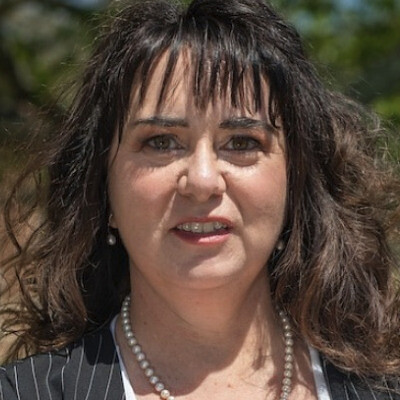This Lightning Talk describes an exercise for 3rd-year medical students- adaptable to other health professions clinical placements – that fosters intentional interprofessional engagement for learners and prepares them for collaborative practice.
Objective: Great concern around the gap between IPE and IPCP experiences has been shared in the interprofessional community. Further, the LCME requires medical students to complete IPE/IPCP experiences with learning objectives and assessments prior to graduation. Increasing emphasis is being placed upon these activities occurring in clinical (as opposed to preclinical) learning environments. The purpose of this initiative was to provide a bridge between students' prior two-year longitudinal IPE training and IPCP opportunities during a Family Medicine clerkship rotation. The exercise was designed with intention to encourage medical students to develop collaborative relationships with healthcare team members during a required Family Medicine clerkship. Competency attainment was assessed through quantitative evaluation and self-reflection.
Methods: Prior to the clerkship, third-year medical students participated in an hour-and-a-half "Orientation to Team-Based Care in Family Medicine" session. The session included a review of the IPEC competencies and tools learned in their previous clinical simulations during IPE, an introduction of team members at each Family Medicine clinic by way of a Google Site, practice with pre-visit planning through a case-based exercise, and an introduction to the clerkship assignment. During the clerkship, third-year medical students were required to complete interprofessional activities (from a menu of options) in conjunction with interprofessional colleagues representing nursing, behavioral health, pharmacy, care management, and office staff members during care of mutual patients.
After completing these activities, students complete a reflection in which they self-report how they had accomplished specific interprofessional competencies (quantitative and qualitative); the healthcare team members with whom the students collaborated also complete a corresponding reflection (quantitative) of students’ interprofessional competence, based upon their interactions.
Results: Two classes of medical students (n ~156) have completed the assignment, and individual feedback has been provided to students.
Conclusions: Clerkship-based interprofessional collaborative practice initiatives, designed with intentionality, promote interprofessional engagement in clinical environments and can prepare medical students for achieving residency milestones related to interprofessional collaboration.
Exercises like this can keep educators true to our north star by bridging the gap between IPE in simulation and real clinical experiences, where team dynamics vary. Intentional team-based clinical assignments enhance opportunities for interprofessional collaboration and feedback.
In support of improving patient care, this activity is planned and implemented by The National Center for Interprofessional Practice and Education Office of Interprofessional Continuing Professional Development (National Center OICPD). The National Center OICPD is accredited by the Accreditation Council for Continuing Medical Education (ACCME), the Accreditation Council for Pharmacy Education (ACPE), and the American Nurses Credentialing Center (ANCC) to provide continuing education for the healthcare team.
As a Jointly Accredited Provider, the National Center is approved to offer social work continuing education by the Association of Social Work Boards (ASWB) Approved Continuing Education (ACE) program. Organizations, not individual courses, are approved under this program. State and provincial regulatory boards have the final authority to determine whether an individual course may be accepted for continuing education credit. The National Center maintains responsibility for this course. Social workers completing this course receive continuing education credits.
The National Center OICPD (JA#: 4008105) is approved by the Board of Certification, Inc. to provide continuing education to Athletic Trainers (ATs).
This activity was planned by and for the healthcare team, and learners will receive Interprofessional Continuing Education (IPCE) credit for learning and change.


Physicians: The National Center for Interprofessional Practice and Education designates this live activity for AMA PRA Category 1 Credits™. Physicians should only claim credit commensurate with their participation.
Physician Assistants: The American Academy of Physician Assistants (AAPA) accepts credit from organizations accredited by the ACCME.
Nurses: Participants will be awarded contact hours of credit for attendance at this workshop.
Nurse Practitioners: The American Academy of Nurse Practitioners Certification Program (AANPCP) accepts credit from organizations accredited by the ACCME and ANCC.
Pharmacists and Pharmacy Technicians: This activity is approved for contact hours.
Athletic Trainers: This program is eligible for Category A hours/CEUs. ATs should claim only those hours actually spent in the educational program.
Social Workers: As a Jointly Accredited Organization, the National Center is approved to offer social work continuing education by the Association of Social Work Boards (ASWB) Approved Continuing Education (ACE) program. Organizations, not individual courses, are approved under this program. State and provincial regulatory boards have the final authority to determine whether an individual course may be accepted for continuing education credit. The National Center maintains responsibility for this course. Social workers completing this course receive continuing education credits.
IPCE: This activity was planned by and for the healthcare team, and learners will receive Interprofessional Continuing Education (IPCE) credits for learning and change.
Learners can claim CE credit by completing the Daily Evaluation.


